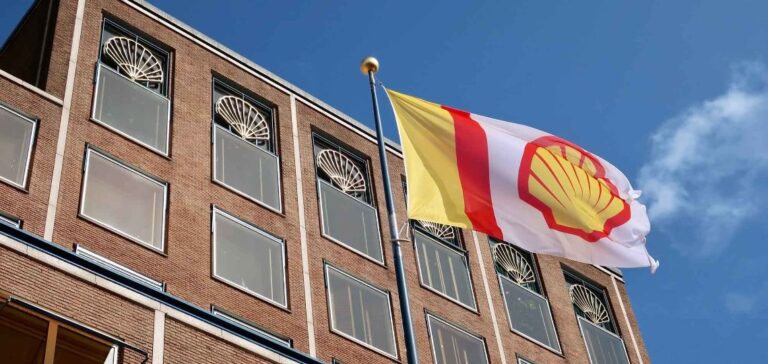The Hague’s Court of Appeal ruled in favor of Shell this Tuesday, dismissing claims by climate defense groups such as Milieudefensie and Greenpeace, which sought to compel the oil giant to adopt stricter CO2 reduction targets. This decision reverses the judgment rendered in 2021 by a Dutch court, which had ordered Shell to reduce its net CO2 emissions by at least 45% by 2030 from 2019 levels.
Reasons behind the court’s decision
Judge Carla Joustra stated that the arguments presented by the NGOs were insufficient to justify such an obligation on Shell. She clarified that the matter was more of a political decision to be taken by governments rather than a legal constraint imposed on a private company. Shell, for its part, argued that emission reduction goals require coordination at national and international levels, rather than individual actions imposed by the courts. Shell’s CEO, Wael Sawan, welcomed the decision, asserting that it supports the company’s strategic approach toward a balanced energy transition. He reiterated Shell’s commitment to achieving net-zero emissions by 2050 while maintaining an effort to halve emissions from its direct operations by 2030.
Reactions from NGOs and climate activists
Milieudefensie’s director, the Dutch branch of Friends of the Earth, expressed disappointment at this judicial setback. He stated that although the outcome is a blow, it does not erase the progress made in raising public awareness of large corporations’ responsibility in the fight against climate change. According to him, the lawsuit against Shell has highlighted the environmental impact of large multinationals, thus stimulating the debate on their role in carbon reduction. Despite this decision, Milieudefensie and other NGOs are now considering taking the case to the Supreme Court. However, the Supreme Court will not review the facts but will instead focus on the procedural aspects of the judgment.
A precedent in the fight against climate change
This lawsuit, known as “the people against Shell,” was initially launched in 2019, supported by more than 17,000 Dutch citizens. The case sought to force Shell to align with the 2015 Paris Agreement goals, which commit nations to limit global warming to 2°C, or even 1.5°C above pre-industrial levels. In 2021, the initial judgment by The Hague’s court marked a historic turning point by imposing precise emission reduction obligations on a multinational, according to the Paris Agreement criteria. This victory was widely hailed by environmental activists, who considered it a precedent in efforts to hold large companies accountable for climate issues.
Shell and BP’s climate target adjustments
In recent months, Shell and other energy companies, notably BP, have revised some of their climate targets, placing increased emphasis on oil and gas activities to boost profits. This strategic shift has angered environmental activists, who believe it moves these companies further from their environmental commitments. The reduction in climate ambitions of these multinationals contrasts with the efforts of many countries and organizations to strengthen greenhouse gas reduction targets.
For now, the Dutch court of appeal’s decision may hinder attempts to regulate multinational corporations judicially on climate matters, but the debate on their climate responsibility remains active and continues to fuel international discussions.





















